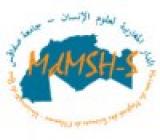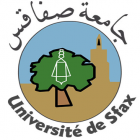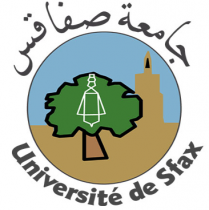Maison du Maghreb des Sciences de l’Homme (MdMSH)
University of Sfax


Description
MdMSH is a new research and training body developing an interdisciplinary approach to the humanities and social sciences in southern Tunisia. Its goal is to stimulate the federation of researchers around interdisciplinary projects pursuing innovative themes and paradigms, by providing them with otherwise inaccessible meeting spaces and services. MdMSH is sponsored by three university institutions: the Faculty of Literature and the Humanities, the Faculty of Economics and Management, and the Faculty of Law, as well as by ten research structures for the humanities and social sciences approved by the Ministry of Higher Education and Scientific Research. The research laboratories and units retain their own programmes and structures, while agreeing to participate in the House’s collective programmes and institutional activities. The centre focuses on a rather broad range of domains, including: history and anthropology, archaeology, sociology, computing and multimedia, applied economics and development, geography and the environment, philosophy, law and legal sciences.
Role in SfaxForward
The Maghreb House of the Humanities and Social Sciences (MdMSH) has long developed competences within the Heritage domain, both in terms of “what constitutes Heritage” and Heritage understood as a “commons”. MdMSH benefits from multidisciplinary academic expertise within this domain: archaeology, history, anthropology, sociology, linguistics, economics and the legal sciences. The team’s competences notably cover the naval Heritage of the Kerkennah Islands, the archaeological Heritage of the Zondag-Tataouine Wadi, and the maritime Heritage of the Sfax region. MdMSH’s cooperation with civil-society bodies, in conjunction with its knowledge of the Southern Tunisian region constitute essential pillars of the SfaxForward project. Indeed, the consortium will benefit from Sfax’s non-academic expertise, through collaborations with Tunisian stakeholders, civil-society representatives, non-governmental organizations and public institutions, to whom the Sfax-based partners enjoy access and whose knowledge they will share.
Key person
Abdelhamid Barkaoui (M): Professor of Ancient History, specialized in the Punic navy and naval ethnography. In charge of the Maghreb House of the Humanities (MdMSH), President of the History Doctoral Commission, Coordinator of the Master’s programme TPTI (Techniques, Heritages, Territories of Industry: History, Development, Didactics), Panthéon-Sorbonne, Paris 1-Univ. Sfax.
Nouri Chtourou (M): Professor of Economics, Vice Dean and Director of Studies for the Faculty of Economics and Management of the University of Sfax. Also, Director of the Research Unit for Development Economics. His studies focus on governance and sustainable economic development, climate-change economics and environmental finance, and neural network applications for economics and finance.
Noomen Rekik (M): Professor of Private Law and Criminology at the Sfax Faculty of Law. His research focuses principally on the notion of family and the interest of children. This question has allowed him to discover the aptitude of family law to ensure social integration and mitigate migration. He is also interested in investment law with regard to promoting heritage and developing cultural tourism.
Salma Jamoussi (F): Researcher and Assistant Professor at Sfax University’s Higher Institute of Computer Science and Multimedia. A member of the research laboratory MIRACL (Multimedia, Information Systems and Advanced Computing Laboratory). Her research focuses on artificial intelligence and data science. She is also a research member of the Mediate project, part of the EU’s Instrument contributing to Stability and Peace (IcSP) that supports security and peace initiatives in Tunisia.
Salma Akrout (F): Assistant Professor of Public Law at the Sfax Faculty of Law, specializing in investment law and corporate tax law. Her research and teaching focuses on the philosophy of law, the law of public economics, intellectual property law within international commerce, administrative law, public financing and cultural heritage law. Bureau member of the Mouwatinet association fighting for gender parity within the public sphere and the respect of gender by local authorities.
Abdellatif Mbrabet (M): Professor of History and Antiquities Archaeology. Director of the laboratory: “Land occupation, population dynamics and lifestyles of ancient and medieval Maghreb”. His research and studies focus notably on: Southern Tunisia, antiquity, archaeology, territorial questions, socio-economics and heritage.
Selma Mhamed Hichri (F): Assistant Professor, HDR certification to direct research in Economics at the Sfax Faculty of Economics and Management. Member of the Research Laboratory for Quantitative Development Economics (LAREQUAD), her research focuses on industrial economics, innovation and entrepreneurship.
Salem Mokni (M): Assistant Professor of Roman History and Archaeology at the Sfax Faculty of Literature and the Humanities and member of the Laboratory for Interdisciplinary and Comparative Studies and Research (LERIC). His research focuses notably on Latin epigraphy and the Roman world’s municipal institutions and elites. Coordinator of the Franco-Tunisian archaeological school site at Thaenae (Thyna).
Adel Ben Youssef (M): University Professor of Contemporary and Modern History at the Sousse Faculty of Literature and the Humanities. Member of the LERIC laboratory (Sfax Faculty of Literature and the Humanities), his research focuses on socio-cultural history, cultural anthropology and biographies.
Zouheir Ben Jannet (M): Maître de Conférences (Lecturer) of Sociology at the Sfax Faculty of Literature and the Humanities, member of the research unit ECUMUS (State, Culture and Social Transformations) and author of several publications exploring development, youth and gender.
Omar Zaafouri (M): Maître de Conférences (Lecturer) of Sociology at the Faculty of Literature and the Humanities and member of the research unit ECUMUS (State, Culture and Social Transformations), his research focuses notably on the sociology of development.
Hassen Boubakri (M): Senior Professor Doctor of Geography and migration studies. He is research supervisor of Ph.D’s. at the Universities of Sousse, Sfax and Tunis (Tunisia). He has a long experience with teaching, research, participation and/or leading of research projects and programs in the fields of Irregular migration, asylum, refugees, and migration policies.
The Sfax university cluster comprises 21 institutions of higher education and research, for 43,473 students and 2,210 instructors. With 93 research structures (45 research laboratories gathering together 4,039 researchers and 48 research units for 2,267 researchers), 12 USCR (“Common Services Units for Research”), 4 research centres and 5 doctoral schools (covering three main disciplinary domains: the humanities and social sciences; the life sciences; the earth sciences and engineering), the “Southern Capital of Sfax” and the greater agglomeration of the Gulf of Gabès boast an exceptional educational and research potential, making greater Sfax home to Tunisia’s second leading academic cluster.
The University of Sfax is home to 2,310 researchers distributed among the university’s research laboratories and its “research units for the humanities and social sciences”, thereby accounting for 37% of all researchers (for the three aforementioned main disciplinary domains). In addition, the university boasts 3 doctoral schools for the humanities and social sciences (Literature, Arts and Humanities; Law; Economics, Management and Computing), occupying 5 separate institutions: the Faculty of Literature and the Humanities, the Institute of Music, the Fine Arts School, the Faculty of Law and the Faculty of Economics and Management. These figures clearly demonstrate the immense scientific and human resources available on-site, to make Sfax an influential hub of research and learning for the social sciences and humanities.

